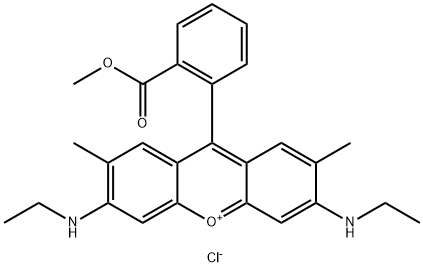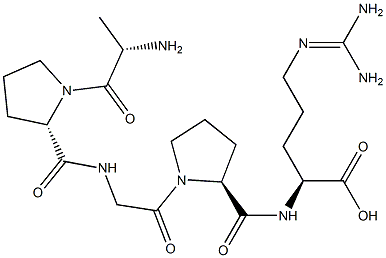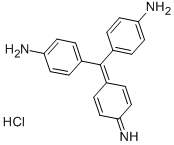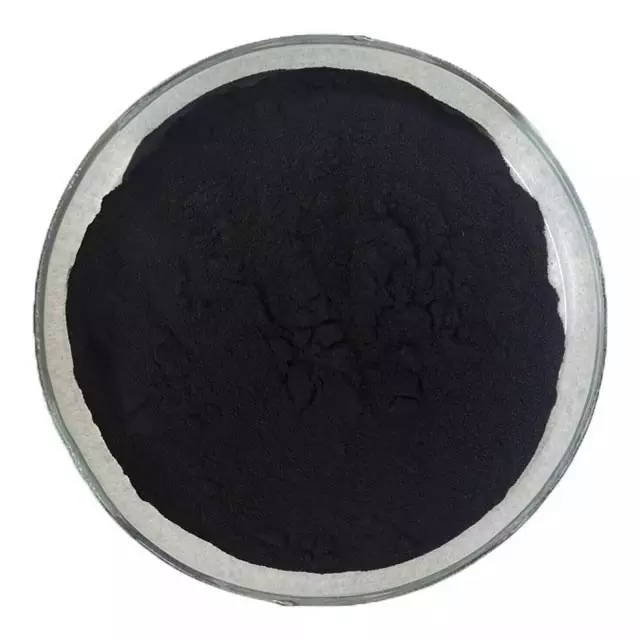Basic Red 1:1
- CAS NO.:3068-39-1
- Empirical Formula: C27H29ClN2O3
- Molecular Weight: 464.99
- MDL number: MFCD01114540
- EINECS: 221-326-1
- SAFETY DATA SHEET (SDS)
- Update Date: 2024-12-18 14:08:57

What is Basic Red 1:1?
The Uses of Basic Red 1:1
C.I.BASIC RED 1:1 is a useful research chemical used as a fluorescent dye.
Preparation
3-(Ethylamino)-4-methylphenol and Phthalic anhydride?condensation,the resulting product was washed with methanol and an inorganic acid esterification.
Flammability and Explosibility
Not classified
Properties and Applications
bright blue light pink. Purple powder or flash of green light crystallization. Soluble in water for big red, with strong green fluorescent, soluble in ethanol for red, with yellow-green fluorescence. The strong sulfuric acid for yellow, diluted in red. Sodium hydroxide solution to join a red precipitate. Mainly used in the manufacture of color break, used in ink. Can also be used for cotton, wool and silk dyeing.
| Standard( Silk ) | Light Fastness | Persperation Fastness | Ironing Fastness | Soaping | |||
| Fading | Stain | Fading | Stain | Fading | Stain | ||
| ISO | 2 | 4-5 | 1 | 3 | 3-4 | ||
Properties of Basic Red 1:1
| Density | 1.27[at 20℃] |
| vapor pressure | 0Pa at 25℃ |
| form | powder to crystal |
| color | Orange to Brown to Dark purple |
| Water Solubility | 18.9g/L at 20℃ |
| λmax | 525nm(H2O)(lit.) |
| CAS DataBase Reference | 3068-39-1(CAS DataBase Reference) |
| EPA Substance Registry System | Xanthylium, 3,6-bis(ethylamino)-9-[2-(methoxycarbonyl)phenyl]-2,7-dimethyl-, chloride (3068-39-1) |
Safety information for Basic Red 1:1
| Signal word | Danger |
| Pictogram(s) |
 Corrosion Corrosives GHS05  Skull and Crossbones Acute Toxicity GHS06  Exclamation Mark Irritant GHS07  Environment GHS09 |
| GHS Hazard Statements |
H302:Acute toxicity,oral H317:Sensitisation, Skin H318:Serious eye damage/eye irritation H330:Acute toxicity,inhalation H410:Hazardous to the aquatic environment, long-term hazard |
| Precautionary Statement Codes |
P260:Do not breathe dust/fume/gas/mist/vapours/spray. P264:Wash hands thoroughly after handling. P264:Wash skin thouroughly after handling. P270:Do not eat, drink or smoke when using this product. P271:Use only outdoors or in a well-ventilated area. P272:Contaminated work clothing should not be allowed out of the workplace. P273:Avoid release to the environment. P280:Wear protective gloves/protective clothing/eye protection/face protection. P284:Wear respiratory protection. P391:Collect spillage. Hazardous to the aquatic environment P405:Store locked up. P403+P233:Store in a well-ventilated place. Keep container tightly closed. P501:Dispose of contents/container to..… |
Computed Descriptors for Basic Red 1:1
Basic Red 1:1 manufacturer
Vikram And Company
1Y
Phone:+91-9821517722
Whatsapp: +91-9821517722
product: 3068-39-1 Basic Red 1:1 98%
New Products
(S)-3-Aminobutanenitrile hydrochloride 4-Methylphenylacetic acid N-Boc-D-alaninol N-BOC-D/L-ALANINOL Tert-butyl bis(2-chloroethyl)carbamate N-octanoyl benzotriazole 3-Morpholino-1-(4-nitrophenyl)-5,6-dihydropyridin- 2(1H)-one Furan-2,5-Dicarboxylic Acid S-2-CHLORO PROPIONIC ACID ETHYL ISOCYANOACETATE 2-Bromo-1,3-Bis(Dimethylamino)Trimethinium Hexafluorophosphate 4-IODO BENZOIC ACID 3-NITRO-2-METHYL ANILINE 1-(2,4-DICHLOROPHENYL) ETHANAMINE (2-Hydroxyphenyl)acetonitrile 4-Bromopyrazole 5,6-Dimethoxyindanone 2-(Cyanocyclohexyl)acetic acid 4-methoxy-3,5-dinitropyridine 1-(4-(aminomethyl)benzyl)urea hydrochloride 2-aminopropyl benzoate hydrochloride diethyl 2-(2-((tertbutoxycarbonyl)amino) ethyl)malonate tert-butyl 4- (ureidomethyl)benzylcarbamate Ethyl-2-chloro((4-methoxyphenyl)hydrazono)acetateRelated products of tetrahydrofuran








You may like
-
 3068-39-1 Basic Red 1:1 98%View Details
3068-39-1 Basic Red 1:1 98%View Details
3068-39-1 -
 Basic Red 1:1 96% (HPLC) CAS 3068-39-1View Details
Basic Red 1:1 96% (HPLC) CAS 3068-39-1View Details
3068-39-1 -
 Rhodamine 590 Chloride CAS 3068-39-1View Details
Rhodamine 590 Chloride CAS 3068-39-1View Details
3068-39-1 -
 1975-50-4 98%View Details
1975-50-4 98%View Details
1975-50-4 -
 2-HYDROXY BENZYL ALCOHOL 98%View Details
2-HYDROXY BENZYL ALCOHOL 98%View Details
90-01-7 -
 2-Chloro-1,3-Bis(Dimethylamino)Trimethinium Hexafluorophosphate 221615-75-4 98%View Details
2-Chloro-1,3-Bis(Dimethylamino)Trimethinium Hexafluorophosphate 221615-75-4 98%View Details
221615-75-4 -
 14714-50-2 (2-Hydroxyphenyl)acetonitrile 98+View Details
14714-50-2 (2-Hydroxyphenyl)acetonitrile 98+View Details
14714-50-2 -
 118753-70-1 98+View Details
118753-70-1 98+View Details
118753-70-1
Statement: All products displayed on this website are only used for non medical purposes such as industrial applications or scientific research, and cannot be used for clinical diagnosis or treatment of humans or animals. They are not medicinal or edible.